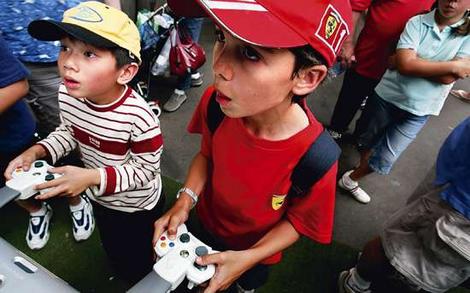
Video games don’t just improve one’s ability to sing rock classics, create virtual identities and shoot aliens. Even violent, fast-paced action titles appear to facilitate improvements in cognitive health categories like visual comprehension and the speed and accuracy of neurological processes. They may even lower rates of age-related cognitive decline.
A University of Rochester research team reporting in the journal Current Directions in Psychological Science found that players of varied ages grow faster and more accurate as they delve further into gaming. The team’s abstract summary offers few details but makes clear that these benefits carry over into areas completely unrelated to any game system. Subjects also score higher in tests of cognitive accuracy after playing. Not only do they process general information faster; they also show fewer signs of the cognitive problems that usually foreshadow dementia and Alzheimer’s disease.
Those studying video games and cognitive functions have long believed that players grow less accurate as they play faster and delve deeper into their favorite games, but the data collected for this report implies the opposite. Interestingly, the trend holds true for both simple, ageless computer games and violent, best-selling shooter titles like those in the Halo and Call of Duty series. The study’s authors concluded that these changes stem from improved visual cognition. As subjects spend more time with games, their response times increase and they grow faster and more accurate with various onscreen actions. As performance improves, test scores measuring general comprehension go up. Elements of cognitive health like memory recall and retention and various measures of attention span grow stronger as well, and these actions facilitate the slowing of mental decline.
The report in some ways compliments an early 2009 study that noted other mental health benefits associated with playing various video games. The games weren’t designed with psychology in mind, but users reported better moods and healthier after periods of play, and researchers linked these improvements to changes in regularheart rhythms. As research progresses, we will almost certainly witness the development of games created for the express purpose of treating depression and anxiety. They will spark debate – and while they may not measure up to the latest version of Grand Theft Auto, we’ll be the first to volunteer for test studies.